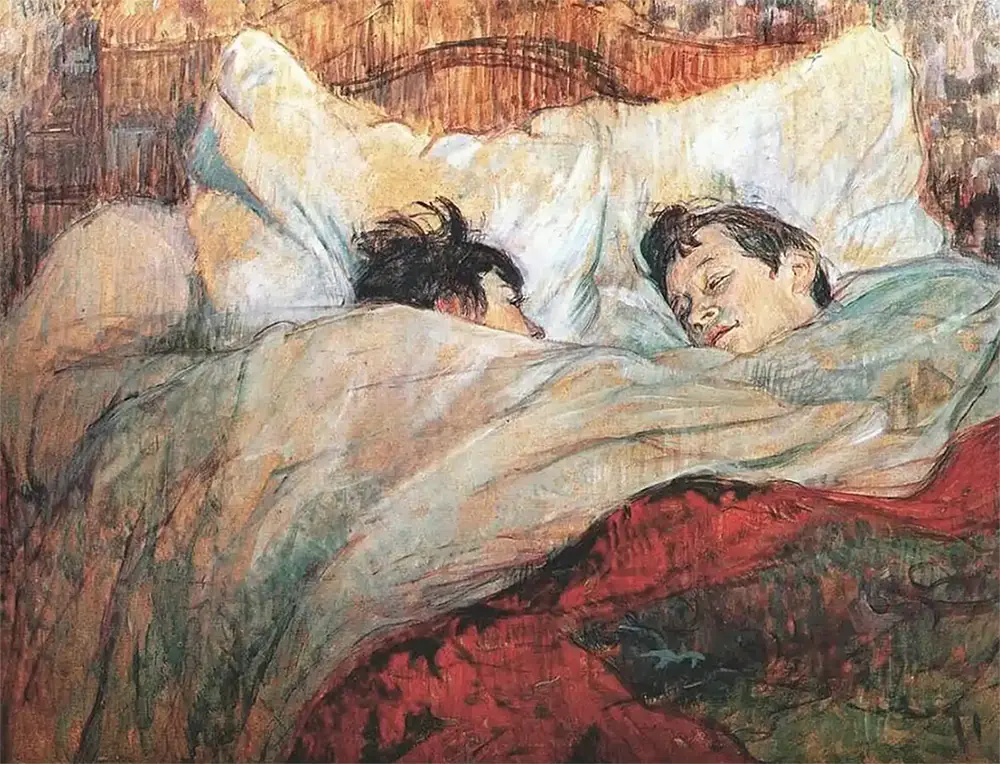Relationships • Mature Love
The Only Love Worthy of the Name
Some of us will require the better part of a lifetime to learn a very simple-sounding lesson – one that should have struck us as obvious and urgent from the start: that the only love worthy of the name, the only love we should ever be interested in, is reciprocal love. In other words, a love where another person is entirely convinced of us as we are of them; where another person is every bit as present in the relationship as we are; a love where we never need to persuade or beg; a love where we aren’t left anxious and agitated by evasions and ambiguities; a love where we don’t have to wonder where they are and when they will get back to us; where we aren’t repeatedly up in the early hours writing them messages explaining what we hope for from them; where they never cease to be entirely there for us, as we are there for them – and where they are profoundly grateful that we are in their lives, just as we are grateful that they are in ours.

This isn’t arrogance or entitlement. This isn’t ‘too much’. This isn’t ‘neediness’. It’s a basic law of emotional reciprocity that will strike us as peculiar or off-putting for only one reason: because we haven’t yet learned what we are owed; because we have come from a very deprived place; because we were, somewhere early on, trained to despise ourselves.
What nonsense we may accept in lieu of this essential and rightful fare. How many years or decades of life we may have wasted mistaking pain for love. Times when we insisted on imagining that they did love us back, they were just too shy to say so. Times when we sat patiently and politely while they tried to decide whether they should be with us or with a rival, and we felt their dilemma so acutely. Times when we paid for everything and they returned the favour with half-heartedness and forgotten birthday presents.
We might have had a marriage behind us in which, almost every evening, we had to fight our case. We had to struggle to have our basic needs acknowledged: that we needed their touch, that we wanted them to be more present, that they couldn’t keep stonewalling us. We might have got involved in all manner of so-called ‘complicated’ relationships – where the person seemed a little loving at first and then very much not so in the long run. But there is never any such thing as a legitimately complicated relationship. They either honour us or they don’t. They are either on the other end of the rope, as firmly as we are, or they don’t belong in our lives in any way.
Let us keep in mind – always – some fundamental rules that might, because so much went wrong in childhood, be the fruit of decades of inner work:
— If they are still deciding but haven’t yet (and there are two other people they quite like as well), we must leave them.
— If they are taking ages to reply to simple messages, we must leave them.
— If they are flirting elsewhere, we must leave them.
— If we need to explain to them why they should want to be with us, we must leave them.
— If they are wrestling with psychological issues for which we have boundless sympathy but which mean they cannot be kind or present, we must leave them.
— If they are not infinitely proud of us, we must leave them.
— If we have given them several good chances and they didn’t listen, we must leave them.
And leave them means exactly that: ensure they are no longer in our lives, that they don’t occupy the slightest space in our cupboards or our thoughts, that there are no more reminders of them anywhere in our consciousness, that we have expelled them like the emotional poisons they are.
It is a complicating factor – but no more than that – that we may be married to them, that we have already invested five years in them, that sex is great with them, that we find them beautiful or clever. None of this means anything. None of this is love.
All this might escape our notice for a tragic reason: because, for some of us, our childhoods deeply muddled our emotional mechanisms. They gave us the sense that to love is to pine; that to love is to hope to persuade a damaged person (who might initially present as sweet and dependable) that we are good enough. That we are never in the right relationship until we feel ignored, uncomfortable and harshly evaluated. That the only person we really need love from is someone who isn’t wholly persuaded by us.
We can’t afford such self-torture and self-abandonment any longer. We need to come down firmly on our own side at last. The self-hatred has gone on long enough. Most people won’t think we’re fabulous – and that’s entirely their right. We simply need to make sure that we don’t ever mistake such types for characters we might love. We need to grow sane enough to allow ourselves to locate, hold on to and tolerate a true ally.
It isn’t in any way entitled. It’s not brittle. We deserve to be adored where we adore. Anything less isn’t romantic; it’s self-abandonment. It deserves to be seen for what it is: a legacy of a letdown that we didn’t deserve then and don’t deserve now. We will have understood love when we know that the emotion is in no way about singular self-sacrifice. It’s about two people who feel constantly blessed to have met, who care infinitely for one another. When this finally seems obvious, we’ll be home.


























